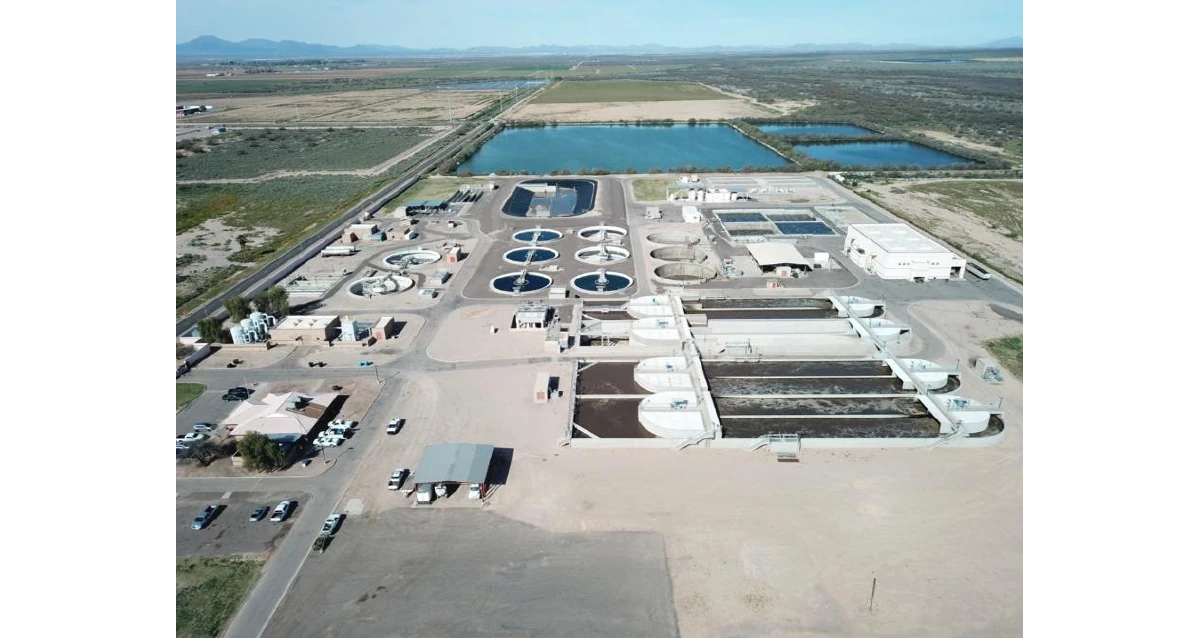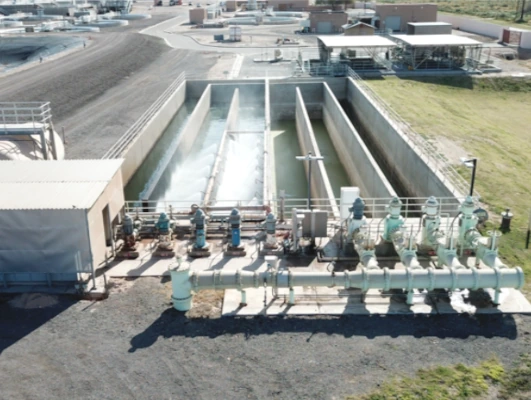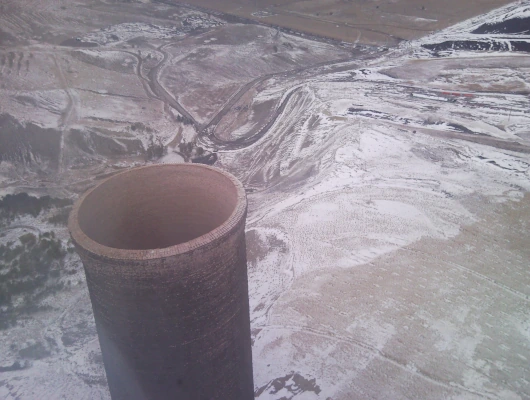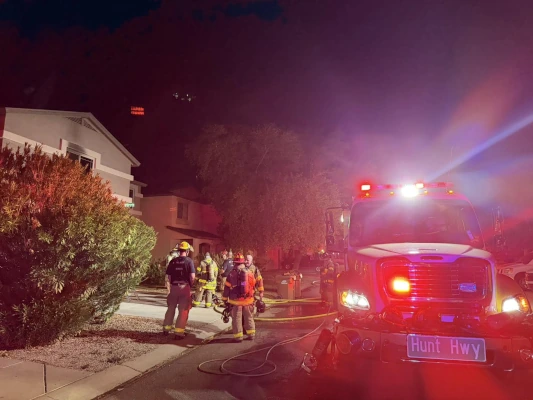City Faces $1.8 Million Loss from Residents Who Refuse to Pay Wastewater Charges
Casa Grande city officials are considering a plan to shut off water service for residents who refuse to pay their sewer bills, addressing a longstanding revenue collection problem that has cost the city an estimated $1.8 million.
The Infrastructure Challenge
Casa Grande operates under a unique utility structure where Arizona Water Company provides all water service while the city manages wastewater treatment. This split creates a significant enforcement problem for unpaid bills.
“Most cities are both the water and wastewater provider which provides a lot of opportunities, so if someone’s not paying their water bill, then they can turn off their water,” explained Robert Aldous, Assistant to the City Manager, during the May 19th study session. “However, because sewer services are all gravity fed, there’s no real conceivable way to turn off a waste water service.”
Some Residents Stop Paying When They Realize Enforcement is Limited
This infrastructure reality has led some residents to simply stop paying their sewer bills entirely.
“That has led to the city ultimately having a number of customers elect not to pay sewer bills, because they’ve identified that if they do not pay the sewer bill, there’s nothing that really the city can do about it,” Aldous said.
The city estimates this represents a small percentage of customers, but Aldous clarified these aren’t residents who weren’t being billed when they should have been. “These are residents that have been billed every single month, are getting a notice in the mail saying, ‘You’re late, you haven’t paid,’ and are choosing not to pay.”
Financial Impact
The problem affects primarily residential accounts, which make up 94% of delinquent accounts. Aldous described the estimated $1.8 million figure as conservative, noting “It could be much greater than that.”
When pressed by council members for more specific numbers, Aldous revealed that about 9% of accounts show some level of delinquency, though he couldn’t specify what portion represents chronic non-payment versus temporary delays.
Previous Solutions Fall Short
The city has tried multiple approaches to address the collection problem. A contract with a collections agency “wasn’t very successful at collecting that additional revenue that was being missed,” Aldous reported. The city found more success with a lien program run by the Finance Department and Attorney’s Office, but officials want additional enforcement tools.
The Proposed Solution
The city wants to enter an agreement with Arizona Water Company that would allow water shutoffs for customers who are 90 days or more past due on sewer bills. The agreement would apply only to “shared customers” who receive water from Arizona Water and sewer service from the city.
Notification Requirements
Before any shutoff, the city must provide two forms of notice: mailing a letter to the resident and placing a physical notice on the property. Arizona Water will only disconnect service after the city meets all agreement requirements.
Reconnection Process
Customers can restore water service by paying their balance in full or entering a payment plan with the city. The city already offers payment plans through its lien program and would extend this framework to the new agreement.
Fee Structure Details
The agreement with Arizona Water includes four types of fees:
- One-time establishment charge: $1,000 (paid by the city)
- Annual fee: 50 cents per shared customer (passed to all customers as a 4-cent monthly increase)
- Disconnection fee: $100 (covers both disconnection and reconnection, charged only to delinquent customers when service is disconnected)
- Monthly lost revenue fee: Variable amount prorated based on days without service (charged only to delinquent customers to compensate Arizona Water for revenue they lose when water service is turned off, as Aldous explained: “Arizona Water doesn’t want to miss out on revenue because they are doing something on the city’s behalf”)
The city would pay only the establishment charge. All customers would see the 4-cent monthly increase from the annual fee, while only delinquent customers would face the disconnection and lost revenue fees when their service is shut off.
Other Cities Report Positive Results Using the Same Agreement Framework
Three entities already use identical agreements with Arizona Water: Buckeye, Sedona, and Coronado Utilities in the San Manuel area. Apache Junction Sewer District and Sierra Vista are also in discussions with Arizona Water.
“Each city highly recommended that the City of Casa Grande enter into the agreement. They said that it works. They say that it’s very effective,” Aldous reported. All existing partners “provided a high level of outreach prior to any disconnections happening” and found that “customers responded quickly” to notices.
“It’s very much a copy-paste of the agreement,” Aldous told the council, explaining that other cities sent word-for-word identical contracts. “The understanding would be the City would also receive the exact same agreement.”
Sedona reported they “have not yet had to turn off a water service because residents have proactively addressed it themselves.” Buckeye found that “the duration between when residents would have their water disconnected and be reconnected” was “much shorter than they anticipated it to be” – typically “within one day or two days at most.”
Council Discussion
Mayor Pro-Tem Matt Herman questioned the annual fee structure, noting that about 22,000 residential accounts — representing roughly 94% of shared customers — would generate about $11,000 annually for Arizona Water at 50 cents per customer.
“They’re not doing anything for that until we tell them to do a disconnection, they get paid for that,” Herman observed. “I don’t understand… how do they justify that?”
Aldous responded that staff had explored alternatives but found limitations. “We even looked at if there’s any way to pass that 50 cent increase along to those that aren’t paying. And realistically, there was no way to do that without creating a massive administrative burden or headache,” he explained. Staff concluded the annual fee represents an unavoidable cost of doing business. “Because of necessity, we have to do something to be able to address this issue, and that involves entering into this agreement.”
Herman then asked about rate adjustments: “So we’d have to reset our rates as well, right? There would be a rate increase?” Aldous confirmed, “Correct. There would be- have to be a minor rate increase.”
Herman acknowledged the fairness issue, noting “It’s not fair for others just to keep going on and having no consequences for that. So we have no teeth,” referring to the city’s lack of enforcement power to collect unpaid sewer bills. He added that having Arizona Water shut off service would provide that needed enforcement capability.
Aldous noted that other cities “received a lot of positive feedback from the community” with residents “expressing to them that they thought it was fair that everyone was paying for the same services, instead of having the people that are paying the bills have to pay higher bills in order to compensate for the revenue that’s not being generated from those that aren’t paying.”
Next Steps
The council expressed informal support for moving forward with the agreement. The process will require several steps:
- Negotiating a formal agreement with Arizona Water Company
- Establishing processes to implement the agreement effectively
- Obtaining a variance from the Arizona Corporation Commission, which is required because Arizona Water would be shutting off service on behalf of the city (a process for which other cities have successfully received approval)
- Conducting a comprehensive public outreach campaign through billing notices, social media, and press releases
- Implementing the program
Aldous indicated the city would bring a formal agreement to the council for adoption at a future meeting, with the goal of resolving the ongoing revenue collection problem that has persisted for years.








